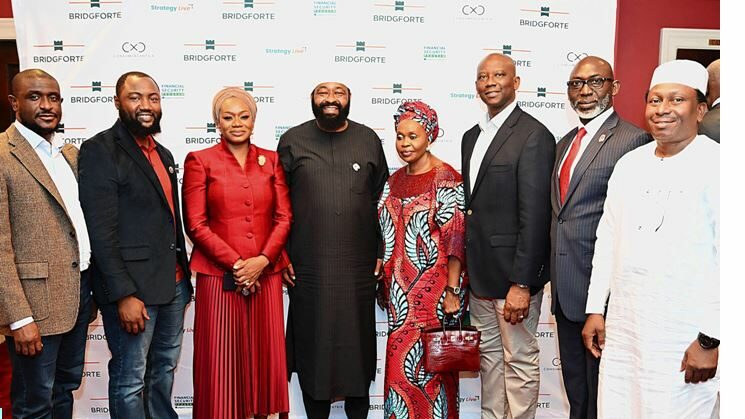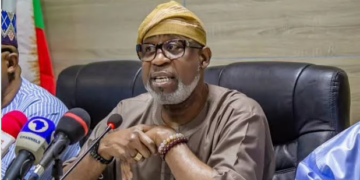Private sector leaders, policymakers, regulators, innovators and philanthropists have said that the best way to confront financial inclusion challenges is for the government and the private sector to co-create policies, monitor outcomes together, and build incentives for long-term commitment.
They insisted that there is a need to chart actionable pathways for inclusive and resilient financial systems.
These were the major takeaways from the inaugural Bridgforte Dialogues Roundtable, which was held on the sidelines of the 80th United Nations General Assembly (UNGA80).
The programme, ‘ Financial Inclusion Towards 2035: Shifting Power, Shaping Systems,’ held at the Harvard Club of New York City, was convened in collaboration with the Aspen Institute Financial Security Programme and ConsumerCentriX.
The Superintendent of the New York State Department of Financial Services, Adrienne Harris, said that New York’s role is to protect consumers and ensure a broad and inclusive financial system.
According to her, New York’s mission is to maintain a thriving marketplace for both traditional institutions and innovators globally.
Also speaking is the Emir of Kano, Sanusi Lamido Sanusi. While reflecting on Nigeria’s long journey toward financial inclusion, the official said that despite the push for a cashless Nigeria, 65 per cent of transactions are still in cash.
The former governor of the Central Bank of Nigeria urged the participants to consider this gap amid the global push toward digital economies.
The governor, National Bank of Rwanda, Soraya Hakuziyaremye, in his virtual contribution at the programme, charged all stakeholders to co-create policies, monitor outcomes together, and build incentives for long-term commitment
The governor of Niger State, Umar Bago, called for stronger government leadership.
According to him, the government must lead on financial inclusion with sound policies, resilient infrastructure, and investor protection. Clear laws and strong regulations ensure durable policies and lasting confidence.
Contributions from private sector leaders like Shola Akinlade (Paystack) and Gbenga Agboola (Flutterwave) highlighted Africa’s opportunity to break down borders through digital innovation, and Bola Adesola (Ecobank Nigeria), who emphasised the role of trust and partnerships in advancing inclusion.
Participants curated table discussions to identify blind spots in current strategies and co-create practical recommendations. The dialogue culminated in a plenary exchange, where perspectives from regulators, entrepreneurs, and philanthropists converged on the urgency of cross-sector collaboration to dismantle systemic barriers.
Commenting on the partnership, Ida Rademacher from the Aspen Institute Financial Security Programme said the roundtable is an exciting step to align private, public, and philanthropic leadership and consumer-centred insights to build a more responsive, beneficial financial infrastructure for the future.
The convener of the Bridgforte Dialogues, Aishah Ahmad, closed with a call to action: “Today we proved the power of an unusual conversation, candid, cross-sector, and bold. We tackled trust, the government’s role, disruptive technologies like DeFi, and the leadership needed for true transformation. Facilitating this dialogue has been a privilege, but the real work begins now, and I am committed to carrying it forward with urgency and resolve.”
The Bridgforte Dialogues align with UNGA 80’s theme “Better Together” and anticipate the upcoming Second World Summit for Social Development, reinforcing that the future of inclusion lies in ensuring historically underrepresented voices are at the centre of shaping global agendas.





